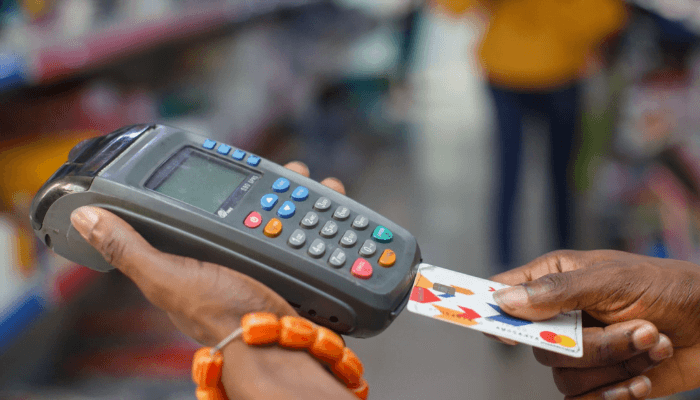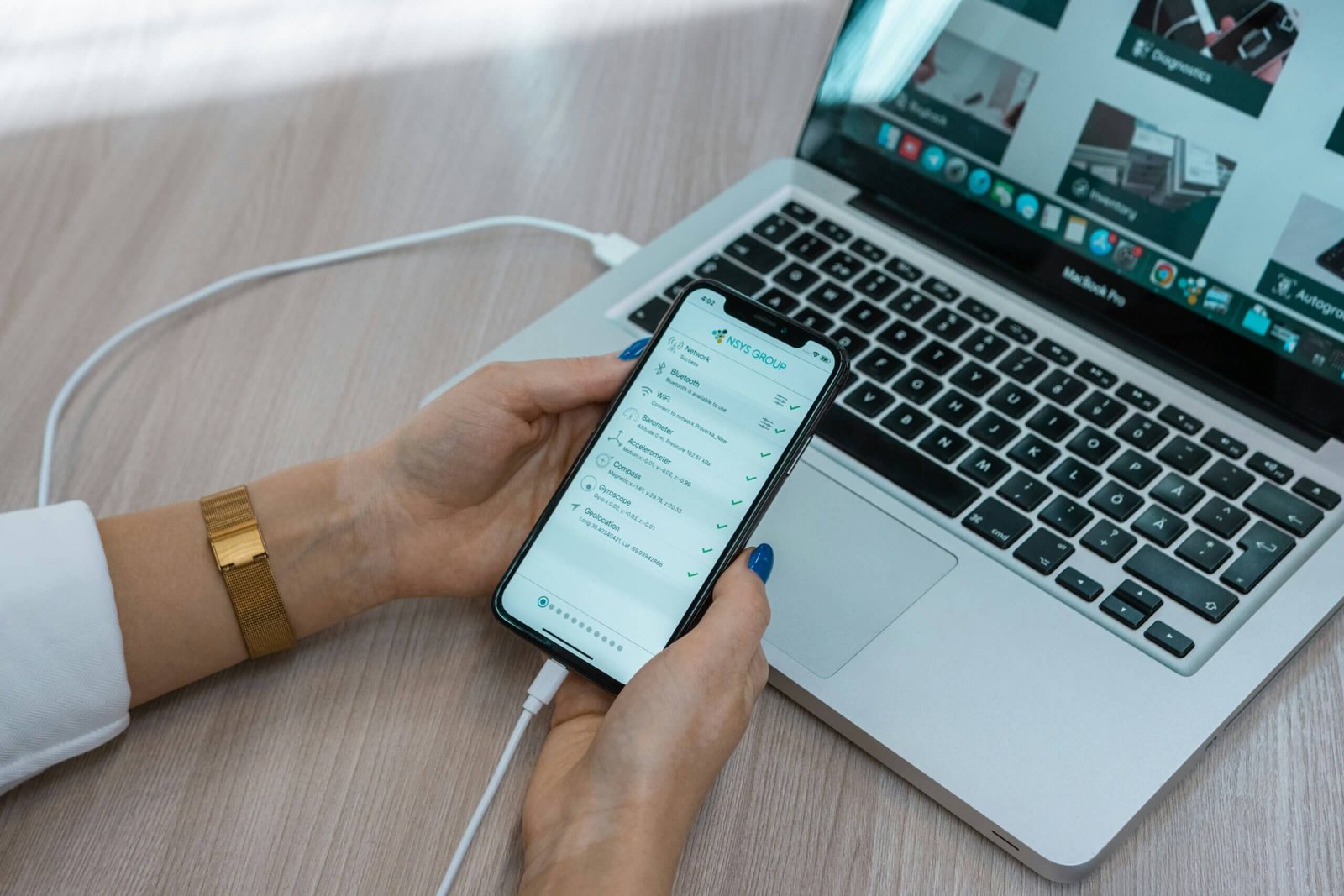
We already discussed the POS business, so I’m sure many of our readers are wondering how to start a POS business in Nigeria. The Point of Sale (POS) industry exploded after the Central Bank of Nigeria (CBN) put the agent banking system in place in 2013.
Thank you for reading this post, don't forget to subscribe!Financial services now have a new route to reach underbanked, unbanked, and rural populations. As a result, POS companies assist in bringing the advantages of banks to rural areas.
Agent banking services, however, cover more ground than simply this particular problem.
Several customers looked for alternative ways to get money or complete transactions due to the long lines and inconsistent network services at ATMs.
It’s also crucial to remember that POS locations are convenient and simple to discover, which eases tension and eliminates the need to travel to a bank or ATM for modest transactions.
In other words, POS businesses give clients affordable access to money that is quickly needed.
But, there is a lot of worry about how profitable such a business will be.
Nonetheless, this company has a huge and diverse prospective customer base that includes everyone with a bank account who does regular financial activities. That is a profitable endeavor.
How To Start A POS Business In Nigeria: how the Industry Operates
An independent contractor working for a point-of-sale (POS) service provider, such as a bank or financial technology company, is known as a POS agent.
A POS agent is a retail channel the bank offers; nevertheless, they are not bank employees and work independently. For transactions involving bank fees, the agent keeps cash on hand.
Wire transfers, withdrawals, the selling of airtime, and the payment of bills for services like GOTV, DSTV, Startimes, PHCN, and others are among the services offered by POS companies.
It is utilized in a variety of establishments including shops, workplaces, restaurants, petrol stations, and supermarkets.
A customer can open a new checking account, withdraw money, transfer money, pay bills, and more at a POS terminal.
All cash transactions can be completed by an agent utilizing a POS system and a customer’s debit card.
The customer starts by placing their debit card into the POS device.
Prior to the customer, the agent selects the right transaction on the POS device and enters the necessary amount. The customer then enters their four-digit PIN.
The GPRS network will print receipts for the agent and the client if the bank’s server accepts the transaction.
POS Business Cost In Nigeria
POS Business Expense What will it cost to start a POS company in Nigeria?
Okay, let’s face it: there is no set minimum charge.
The amount of capital you require to launch your firm will depend on how expansive your ambitions are.
To begin with, you’ll need enough cash to pay for the machine’s purchase price as well as customer payments. This sum should be in the range of 50,000 and 250,000.
A few banks and fintech firms provide retailers with complimentary POS equipment. To be eligible, you must, however, satisfy their requirements.
How to Start a POS Business In Nigeria
As I’ve already mentioned, the POS sector performs best in underbanked or non-banked regions, such as rural and semi-urban areas.
As a result, determining that there aren’t enough banks in the area to suit the demands of the community is the first stage in opening a bank. This way, a profit is guaranteed.
Universities, key intersections, business centers, and comparable locations are a few examples.
Learn the prerequisites and step-by-step guidance for establishing a POS machine business in Nigeria.
- Observe the Conditions
- Contact Your Preferred Financial Organization
- Purchase a POS device
- Choose a Very Profitable Location
Observe the Conditions
To safeguard the public against dishonesty in the closely regulated financial services sector, the Central Bank of Nigeria has established strict regulations for anyone applying to become an agent.
A business that has been operating for at least a year and a physical location from which to conduct business are two of the prerequisites.
The following documents are among those needed:
- Valid forms of identification include a passport, driver’s license, national ID card, and voter registration card.
- The number for Bank Verification (BVN)
- two (2) photos from a passport
- two (2) references to current accounts
- a record of your company’s registration (CAC Certificate)
- A number associated with taxes (TIN)
- Association’s Memorandum and Articles.
- a Credit Bureau Report
- a $50,000 minimum working capital
Contact Your Preferred Financial Organization
Almost all banks in Nigeria accept transactions completed through agents in terms of banking.
The next step is to get in touch with the financial institution you’ve chosen to discover more about their specific needs.
You can represent as many financial institutions as you’d like, under CBN regulations.
You must fill out a number of paperwork and agreement forms regarding the details of the purchase.
When all conditions are satisfied, the bank will accept your application in accordance with CBN’s operational rules.
You must provide particular documentation and demonstrate that you have set up a business bank account for direct deposits in order to meet the proposal’s requirements.
Nigerian POS Service Providers
Financial institutions and mobile money providers, such as: are some of the most well-known POS service providers.
- POS Agency Opay
- Ecobank
- Baxibox
- PalmPay \sGTbank
- Arctic Bank
- First Monie Point of Sale
- Flutterwave
- Bank Wema
- Bank Paga Zenith
- Agency Access Closa
- UBA Monie Point of Sale
- Bank Monie Point POS Nomba (formerly Kudi)
- Quickteller
Purchase a POS device
Only commercial banks in Nigeria are required to provide free POS equipment to their agents.
Each POS business intending to begin operations in Nigeria must have it.
Therefore, all you would need to do is physically visit the bank and submit the required papers.
Depending on the vendor or financial institution you choose to work with, the cost of the machine will change.
For POS devices, there are set prices. The costs range from 45,000 to 75,000 at the moment.
In rare circumstances, they may even reach 150-200k.
The machine’s many features and technical requirements decide how much it costs.
The network support of the gadget is listed in its specifications. Certain devices support 4G, while others only support 2G and 3G. Naturally, the former will be more expensive than the latter.
Choose a Very Profitable Location
For this kind of business, markets, busy streets, shopping malls, event sites, and other open spaces with plenty of foot traffic are suitable alternatives.
More people using your services each day will improve your daily revenue because of the significant foot traffic.
Once you’ve located a desirable location, construct a shed or store there, leaving enough space for both you and your clients to comfortably move around.
Install a sign highlighting all the various retail banking services you offer.
It is well known that the yearly rent for a storefront is excessively expensive in the majority of Nigeria.
A showy structure isn’t necessary for a POS business to start with.
This is due to the fact that most POS establishments only have a wooden kiosk, an umbrella, a table, and a chair (although doing so is not a good idea for safety reasons).
RELATED: How The POS System Works
Final thoughts
A POS business can be very profitable in Nigeria.
It’s a great chance to expand your services and cross-sell to customers who come in off the street.
Avoid locations close to banks, and make sure there are sufficient security precautions in place and the area is crowded.
If you perfectly complete these minor measures, you can anticipate a bigger daily income.






